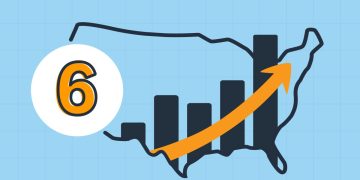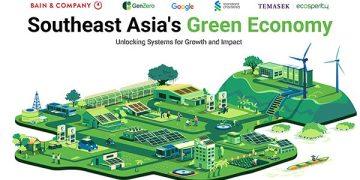Artificial Intelligence (AI) has been a hot topic for decades, but its rapid development in recent years is making its impact more tangible than ever before. From self-driving cars to AI-driven customer service, its influence is already reshaping industries and everyday life. As we continue to make strides in machine learning, natural language processing, and automation, AI is poised to drastically alter the way we work—affecting everything from job roles to workplace structures. But how exactly will AI change the work landscape, and what does that mean for employees and businesses alike?
In this article, we’ll explore how AI technology is transforming the modern workplace, the new opportunities it creates, and the challenges it may present for workers across various sectors. Let’s dive into the key ways AI will impact the workforce and how we can prepare for a future that is increasingly powered by artificial intelligence.
1. Automation and the Changing Nature of Jobs
Replacing Repetitive Tasks
One of the most significant changes AI will bring to the workplace is the automation of repetitive tasks. Jobs that involve simple, routine work—such as data entry, inventory management, or even basic customer support—are prime candidates for automation. AI systems can process large amounts of data quickly and accurately, reducing the need for human intervention in these tasks.
For example, AI-driven chatbots are already handling customer service inquiries, while software automation tools are streamlining processes in finance and accounting departments. This allows employees to focus on higher-value work, like creative problem-solving or complex decision-making, rather than spending time on monotonous tasks.
Job Displacement and Creation
While automation can lead to the displacement of certain jobs, it also creates new ones. As routine tasks are automated, employees will be freed up to take on more strategic roles that require human intuition, emotional intelligence, and creativity—skills that AI still struggles to replicate.
For instance, new roles may emerge in AI system development, management, and maintenance. Additionally, industries like healthcare, education, and tech will likely see an increase in demand for workers who can interpret and apply AI-driven insights to improve outcomes.
2. Enhancing Productivity and Efficiency
AI as a Collaborative Tool
AI is not just replacing jobs—it’s also enhancing human capabilities. Tools powered by AI, like smart assistants or predictive analytics, are designed to work alongside humans, helping them make faster, more informed decisions. These tools are especially valuable in industries like marketing, where AI can analyze customer data to predict trends and provide personalized recommendations.
For instance, AI-driven marketing platforms can help businesses better understand customer behavior and optimize ad campaigns for maximum effectiveness. This leads to more targeted strategies, less wasted spending, and ultimately, higher returns.
Real-time Data Analysis and Decision-Making
AI can process vast amounts of data in real time, providing valuable insights that humans might miss. In sectors like finance, AI is already being used to analyze market trends, detect fraudulent activity, and predict stock movements. This ability to make data-driven decisions quickly is transforming industries, giving businesses a competitive edge.
In manufacturing, AI-driven predictive maintenance is helping to avoid costly breakdowns by identifying equipment issues before they occur. This shift toward predictive rather than reactive approaches is making workplaces more efficient and less prone to costly errors.
3. The Rise of Remote Work and AI Tools
AI-Powered Collaboration Tools
As remote work becomes increasingly popular, AI technology is helping bridge the gap between physical and virtual offices. AI-powered tools like virtual assistants, project management software, and collaboration platforms are making it easier for teams to stay connected and work efficiently, no matter where they are.
For instance, tools like Zoom, Slack, and Microsoft Teams already integrate AI to enhance meeting productivity. Features like automatic transcription, meeting summaries, and smart scheduling make remote work more seamless and less time-consuming. These innovations improve communication and workflow, making remote work a viable option for more organizations.
Virtual Workspaces and AI Integration
In the future, we might even see the rise of fully virtual workplaces. With AI-driven virtual environments and augmented reality (AR) technology, remote workers could interact in more immersive ways, such as through digital avatars or holographic meetings. This would make collaboration feel more natural, even when teams are spread across different continents.

4. AI in Decision-Making and Leadership
AI for Strategic Insights
AI’s ability to analyze complex data sets and provide insights is transforming decision-making at all levels of business. CEOs, managers, and executives are increasingly turning to AI tools to guide their strategies. These systems can help forecast market trends, suggest operational improvements, and assess risk, allowing leaders to make more informed decisions with greater confidence.
For example, AI-powered decision support systems can help companies assess the viability of new projects, evaluate customer feedback, and identify potential growth opportunities. This can lead to better business outcomes and a more agile response to changing market conditions.
AI and Ethical Leadership
As AI becomes more integrated into business decision-making, questions about ethical use and fairness will become increasingly important. How can we ensure that AI algorithms do not perpetuate bias? How do we strike a balance between AI’s efficiency and the potential risks it poses to workers?
Business leaders will need to be mindful of these ethical concerns as they deploy AI in the workplace. Building AI systems that are transparent, accountable, and designed to be fair will be essential for fostering trust in AI-driven decision-making.
5. AI’s Role in Skill Development and Learning
Upskilling the Workforce
As AI transforms workplaces, the demand for new skills will only increase. To thrive in an AI-powered environment, employees will need to acquire new competencies, such as data analysis, machine learning basics, and understanding how to collaborate with AI tools. This shift will necessitate large-scale upskilling programs and lifelong learning initiatives to ensure workers are prepared for the jobs of the future.
For example, industries like healthcare are seeing a growing demand for workers who understand AI and can leverage it for better patient care. Similarly, fields like marketing and customer service are increasingly seeking professionals who can interpret AI data and apply it to real-world challenges.
Lifelong Learning and Adaptability
AI will also encourage a culture of continuous learning. As technology evolves, so too must workers. Companies will need to prioritize adaptability and invest in training programs to ensure employees can keep up with the rapidly changing landscape. Workers will have to be comfortable with constant learning and upskilling if they want to stay relevant in the AI-driven job market.
6. The Ethical Considerations of AI in the Workplace
Job Displacement vs. Job Creation
While AI can automate many tasks, it also raises the concern of job displacement. Some workers, particularly those in routine, manual, or administrative roles, might find their jobs replaced by AI systems. This could lead to significant social and economic challenges, especially if workers are not given opportunities for retraining and reskilling.
At the same time, AI also creates new roles, as mentioned earlier, in fields like data science, AI ethics, and AI management. These shifts will require careful management to ensure that displaced workers are not left behind in the transition.
Privacy and Surveillance Concerns
AI can enhance workplace productivity, but it also raises concerns about privacy and surveillance. Companies may use AI to monitor employee performance, track work habits, and even analyze behavioral data. This can raise ethical issues related to workers’ rights and privacy, particularly if such technologies are used excessively or without proper transparency.
7. Conclusion: Embracing the AI Future of Work
The rapid advancement of AI technology is undeniably transforming the workplace. From automating routine tasks to enhancing decision-making and creating new job opportunities, AI is set to redefine how we work. While this shift brings about challenges, it also offers a wealth of opportunities for innovation, productivity, and growth.
As businesses and workers embrace these changes, it’s crucial to stay ahead of the curve by continuously adapting and learning. By understanding AI’s potential and its ethical implications, we can navigate the future of work with confidence and ensure that technology benefits both businesses and employees alike.
In the end, AI is not here to replace us but to help us work smarter and more efficiently, creating a future where human creativity and AI-driven precision coexist to drive progress.



































